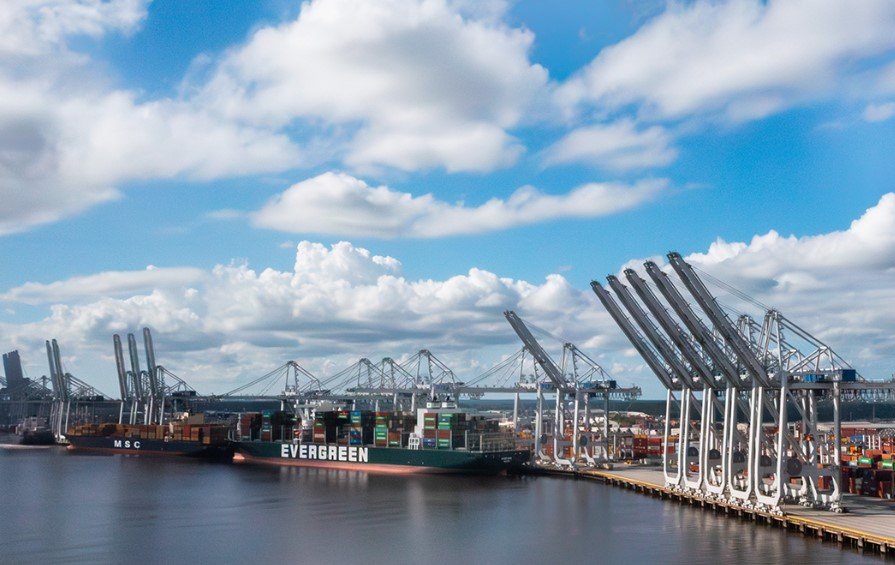Georgia’s robust port system plays a pivotal role in fostering economic growth, particularly in Bartow County, where ports support a significant number of jobs. A recent study from the University of Georgia highlighted the tremendous impact of Georgia’s ports, with Bartow alone seeing 6,617 full-time and part-time jobs directly tied to port activities. These numbers underscore the importance of Georgia’s seaports and inland terminals, not only to the state but specifically to its regional economies.
Bartow County’s Strategic Positioning
Located in northwest Georgia, Bartow County benefits from its proximity to both the Appalachian Inland Port and the deep-water port of Savannah. These transportation hubs are vital for facilitating international trade and linking local businesses to global markets. Peter Olson, the Bartow County Administrator, emphasized the county’s importance as a major player in Georgia’s trade ecosystem. “Bartow is home to over 35 international companies, and the ports, including the Appalachian Inland Port and Savannah, link those companies to global commerce,” Olson said.
The Appalachian Inland Port, one of Georgia’s key inland facilities, acts as a logistical powerhouse by connecting the state’s manufacturing sector with seaports. This inland terminal, strategically located in Bartow, provides a direct link between the region and the global marketplace, facilitating the movement of goods to and from the Port of Savannah.
Bartow’s Role in Georgia’s Global Trade Network
Several major international companies in Bartow rely on Georgia’s ports for their global operations. One such example is Toyo Tires, a Japanese multinational corporation. Toyo employs over 1,000 people in Bartow and is heavily involved in importing large volumes of rubber, which is crucial for its tire manufacturing operations. Once produced, millions of tires are exported globally. Similarly, Anheuser-Busch, a leading beer manufacturer, relies on the ports to export millions of cans and bottles of beer each year.

These industries are just a few examples of the broader impact of Georgia’s ports on Bartow’s local economy. The study from the University of Georgia not only highlights the number of jobs generated by these ports but also reveals the ripple effect they have on local businesses, services, and infrastructure. As companies continue to expand their operations, more job opportunities are expected to follow, benefiting both Bartow County residents and surrounding communities.
Economic Diversity in Bartow
The diversity of industries that rely on Georgia’s ports is another significant aspect of Bartow’s economic landscape. From manufacturing and agriculture to consumer goods and logistics, the port system enables businesses of all kinds to thrive. In turn, this creates a dynamic workforce where employees can find opportunities across various sectors. With industries like Toyo Tires and Anheuser-Busch leading the charge, there is ample demand for skilled labor, ranging from truck drivers to logistics managers.
But it’s not just about the big names. Smaller businesses in Bartow also benefit from the robust port system. Local restaurants, suppliers, and service providers all gain from the influx of trade and business that the ports facilitate. As these companies grow, they create additional jobs and foster a strong sense of community.
Job Growth and Economic Expansion
As Georgia’s port network continues to grow and evolve, the potential for further job creation in Bartow remains high. A key point in Olson’s remarks is that the ports don’t just support jobs directly tied to shipping and logistics. The entire local economy sees a boost from the activities at these terminals. New businesses are drawn to the area by the efficiency and connectivity that the ports offer, which leads to greater job creation in diverse sectors.
In fact, the growth of the local economy could accelerate even further in the coming years. The continued expansion of Georgia’s port facilities and the rise of new industries in Bartow County could lead to more opportunities for employment and community development. Whether it’s in manufacturing, transportation, or services, more jobs are expected to be created as a direct result of Bartow’s connections to the port system.
Challenges and Opportunities Ahead
Despite the obvious benefits of port operations, there are challenges that come with such significant economic dependence. The increasing demand for infrastructure improvements and the strain on local resources are ongoing concerns. However, there are opportunities for Bartow to capitalize on its strategic position within Georgia’s economic network. The county’s focus on workforce development, infrastructure, and business expansion will be key in ensuring that Bartow continues to benefit from the growth of the state’s ports.
As Georgia’s ports evolve, Bartow will likely see even more job opportunities in emerging industries. Whether it’s in sustainable manufacturing, green technologies, or logistics innovation, the county’s role in Georgia’s economic framework is set to continue growing.
